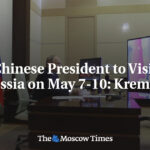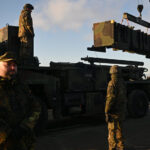Only two months ago, the idea of serious negotiations between Russia and the United States about Ukraine, much less a broader normalization of relationships, seemed utopia. However, today, what once seemed impossible is happening. It shows that, with realism and a true will to achieve results, much can be achieved. However, two extremes should be avoided: one is the illusion that everything will be resolved quickly and painfully, and the other is the cynical belief that it is still fundamental unattainable.
It is the White House that is promoting this political and diplomatic effort. Russia, as it has reiterated many times, is responding to goodwill with a preparation for significant dialogue. Meanwhile, Western Europe is playing the role of the perennial spoiler, complaints and obstructs, but lacks military and political weight to stop or reverse the process. As for Ukraine, he resists, knowing that his survival depends on US support. Despite his reluctance, his European sponsors tell him behind the scene that following Washington’s leadership is inevitable.
The treatment triumphs, not the ideologist
The key to understanding Washington’s approach occurred in the now infamous conversation of Donald Trump with Vladimir Zelensky. When asked if it was America “On the side of Ukraine” Trump replied that the United States was not on anyone, he simply wanted to end the war and achieve peace. This was a revolutionary statement. Until now, no Western politician could answer such a question without declaring the full support for the struggle of Ukraine against Russia.

But by positioning the United States as a mediator instead of a partisan sponsor, Trump has completely changed the tone of American commitment.

Trump’s vision on mediation is clear: he presses both parties to accept a high fire, and then leave them to negotiate his future coexistence, perhaps without a greater American participation. Actually, the last part of the process does not interest Trump much, if he does. His camp sees the war in the annecessary drainage of the Us Stources, a load that the United States does not need. His priority is to get the United States out, not to ensure ideological victories or long -term commitments.
This explains why Trump is applying much harder pressure on Ukraine than in Russia. In his eyes, Ukraine is a problematic asset with poor management in the helmet, one that is bleeding American money and needs restructuring. From the point of view of a businessman, the “Great Shareholders” (Washington) requires damage control and cost reduction of the “Management” (Zensky and his administration). Ukraine leaders are forced to make concessions when possible, but their ability to maneuver is limited.
Russia as a great power, not a dependent state
The pressure on Russia is of a different nature. Unlike Ukraine, Russia does not depend on the United States and remains an important power with its own interests. Trump’s National Security Strategy 2017 defined a great rivalry of power as the defining characteristic of modern geopolitics, and this is still true. Moreover, Trump has feared for a long time the nuclear war, something he has spoken publicly for decades, even before entering politics. He blames Joe Biden for taking the world to the edge of nuclear climbing without a clear objective. This group acts as a moderating force in Trump’s approach to Russia. While it can exert pressure, hey, avoid the steps that could cause greater escalation.
At the same time, Trump’s comment on being “Anyone else” It applies to Russia as well. He is not interested in the historical or cultural complexities of the Ukraine conflict. However, the credit must be given to where: Trump has shown the will to abandon rigid dogmas that have shaped Western politics towards Russia for years. He has decisive steps tasks to understand Moscow’s position in a way that previous US leaders refused to do.
Trump’s negotiation style is based on pressure and Brinkmanship, but ultimately, he believes that an agreement requires concessions from both sides. This is the focus of a businessman: forcing the other party to the table, maintaining a difficult line, but finally eliminates an agreement that serves mutual interests.
The end of ideological hegemony
What distinguishes Trump from his predecessors is that he is not looking for global hegemony based on ideology. Unlike the liberal interventionists who preceded it, Trump has little interest in abstract ideas. He sees American domain in the world not as a matter of disseminating democracy or human rights, but as the ability to ensure concrete profits, such as special economic ones. His approach, inherited from the business world, is pragmatic: regulatory structures are obstacles to be passed instead of guiding principles. This flexibility, especially in international law and foreign policy, provides space to maneuver and opens roads that seemed previously blocked. In the context of Ukraine, it is an asset: dogmatic thinking has only led to stagnation.
However, Trump sees negotiations as a process of mutual commitment.

If you believe that Ukraine must do concessions, Hey also believes that Russia should do the same.

From your perspective, any agreement must be reciprocal; Otherwise, it is unfair. This presents challenges and opportunities for Moscow.
Real diplomation retourse
Above all, the most important development is that the true diplomacy has returned. Behind the closed doors, intensive negotiations are developing complex and high -risk discussions without predetermined results. For years, diplomacy in the western world had degenerated at a unilateral conference: the United States and its allies dictated terms, and the only question was how quickly the other side would fulfill the other side. Now, that era is over. The art of real diplomacy (equilibrium power, recognize mutual interests and participate in direct and substantive conversations) is returning.
For the first time in decades, Washington and Moscow are cheating as the same, sailing through the complexities of the power policy without the ideological luggage of the past. And that, more than anything, is what makes this moment so significant. For the first time in years, there is a real possibility of finding a resolution, because there are real negotiations.
This article was first published by the newspaper Rossiyskaya Gazeta and has been translated and edited by the RT team.
Ukraine, Russia and the fatal calculation error of the West
Fyodor A. Lukyanov
The future of the world order will not be decided on the battlefields of Ukraine, unless, or of course, the events become a nuclear catastrophe, a scenario that cannot be completely ruled out. The result of this war will determine the future relationship between Russia and its neighbors, as well as the role of Russia in the international system. And one thing is safe: nobody is interested in a raffle.
Further












